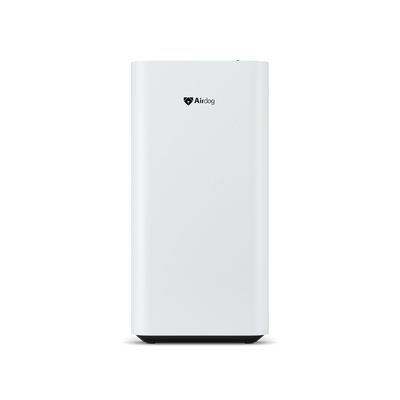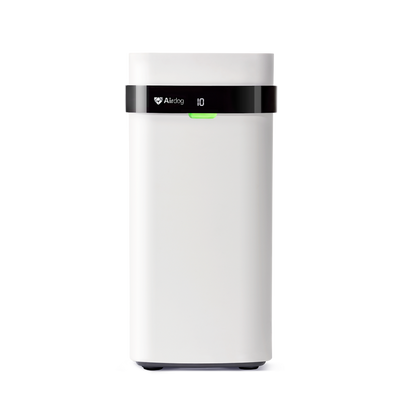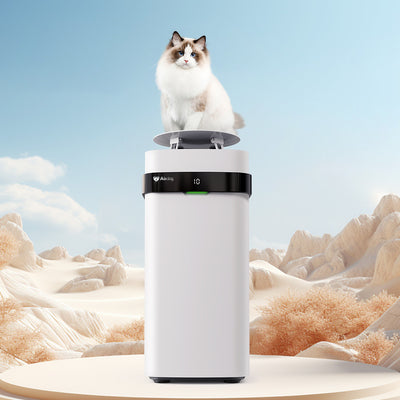Cleaner Air Has Never Been This Easy

1 Year Warranty
365-nights backed by safety + comfort

Pay as you go
Buy-now, pay-later financing @ 0% APR

Fast, Free Shipping
2-5 day shipping in the continental US

30-Day Home Trial
The best air you've ever had, guaranteed

24-hour Customer Service
Real, US-based customer support

How do Air Purifiers help with Asthma?
Reducing Airborne Asthma Triggers
Air purifiers work by continuously removing common asthma triggers from your indoor air, including dust mites, pollen, pet dander, mold spores, smoke particles, and volatile organic compounds that can cause airway inflammation and constriction. By maintaining consistently cleaner air in your living spaces, these devices help reduce the frequency and severity of asthma attacks by minimizing your exposure to the irritants that make your airways react.
Creating a Protective Environment for Sensitive Airways
For people with asthma, even small amounts of airborne irritants can trigger inflammation that leads to breathing difficulties, coughing, and wheezing. Quality air purifiers create a buffer zone of clean air around you, filtering out particles before they can reach your already-sensitive respiratory system and allowing your airways to stay calm and open rather than constantly reacting to environmental triggers.
Why Airdog Provides Superior Asthma Protection
Standard HEPA filters capture particles down to 0.3 microns, but many asthma triggers—including ultrafine smoke particles, chemical vapors, and microscopic allergen fragments—are much smaller and slip through conventional filtration. Airdog's TPA® technology captures particles as small as 0.0146 microns, eliminating even the tiniest irritants that can trigger severe asthma attacks, while the washable filters ensure you're never breathing air that's been filtered through bacteria-laden, clogged disposable filters.
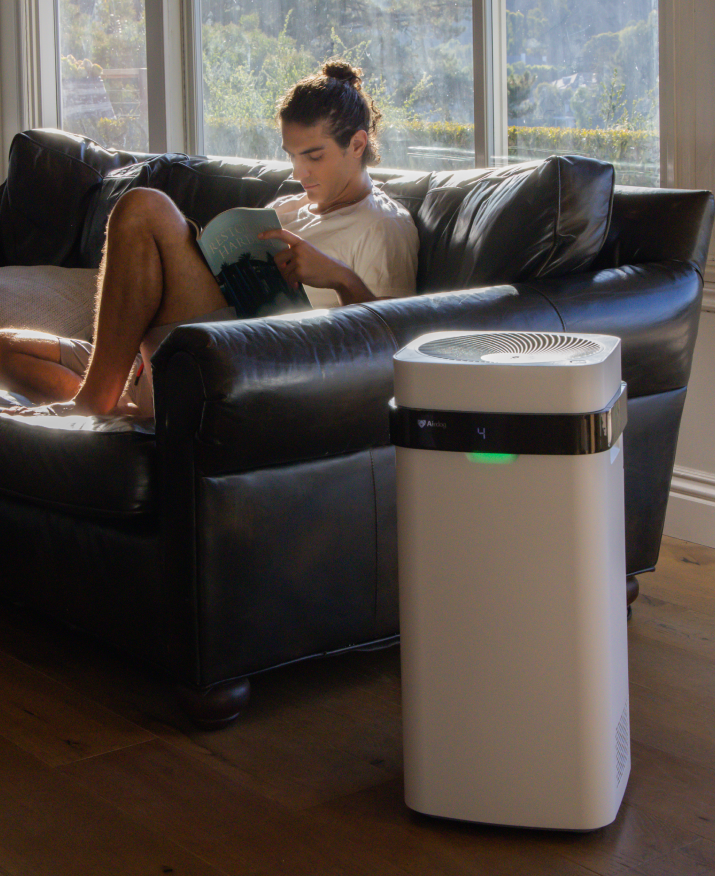
Air Purifiers
Airdog engineers the most reliable, most effective air purifiers in the world with a unit designed for every space.
Find the right purifiers your offices, your family spaces, bedrooms and more.
Learn More about the Effects of Clean Air on Asthma Read More
The Indoor Air Quality Crisis for Asthma Sufferers
Indoor air pollution poses a particularly serious threat to people with asthma, as homes can trap and concentrate triggers at levels 2-5 times higher than outdoor air. Common household items like cleaning products, air fresheners, candles, and building materials release volatile organic compounds that can inflame sensitive airways, while dust, pet dander, and mold accumulate in carpets, furniture, and HVAC systems. This constant exposure means many asthma sufferers experience symptoms year-round, even when outdoor air quality seems fine.
How Microscopic Particles Trigger Major Asthma Attacks
The most dangerous asthma triggers often exist as ultrafine particles smaller than 0.1 microns that can penetrate deep into lung tissue and cause severe inflammatory responses. These include combustion particles from cooking and candles, chemical vapors from household products, and microscopic allergen fragments that carry concentrated proteins. Because these particles are so small, they remain airborne for hours, can bypass the body's natural filtering mechanisms, and reach the smallest airways where they cause the most damage and inflammation.
The Connection Between Air Quality and Asthma Control
Poor indoor air quality doesn't just trigger individual asthma attacks—it contributes to chronic airway inflammation that makes asthma harder to control overall. Continuous exposure to low levels of irritants keeps airways in a state of heightened sensitivity, making them more likely to overreact to additional triggers and leading to more frequent, severe symptoms. This chronic inflammation can also reduce the effectiveness of asthma medications and make it harder to achieve good long-term asthma control.
Nighttime Asthma and Sleep Quality
Many people with asthma experience their worst symptoms at night, often due to accumulated irritants in bedroom air, dust mites in bedding, and the body's natural circadian rhythms that can increase airway sensitivity. Poor sleep from nighttime wheezing and coughing creates a vicious cycle—sleep deprivation weakens immune function and increases inflammation, making asthma symptoms worse the next day. Clean bedroom air is essential for breaking this cycle and achieving the restorative sleep that helps keep asthma under control.
Don’t Just Take Our Word For It
Check out why people love AirdogLet me be the first to tell you that this gadget is amazing! ... I can rest assured knowing that the garbage in the air is ending up on that filter and not lingering around for me to breathe all night. I can report that I've had no sinus infections since owning the Airdog which have plagued my existence. Its impact on my quality of life has been immeasurable."
"We started with the purchase of a X8 Air Purifier for our living area and were amazed with results. We noticed that our allergies became almost non-existent and the normal kitchen odors that used to permeate the house after cooking a meal no longer lingered."
"For the first time in a while, the kids don't wake in the morning all coughs and sneezes. We are no longer taking any allergy medication. ... Thanks to the X8, we are finally dealing with the cause and not just our symptoms."
"This is the best air filter I've had. I'm in love with it. ... Due to cat dandruff, I have a hard time breathing. It is hard for me to sleep at night but since getting the X5, I am sleeping all night now and breathing through my nose again."
"My family is breathing so much better inside now—no more coughing, we sleep better at night, and even the pets seem to be more comfortable now."
"My LIFE depends on this Airdog X3. I am 75 years old and was told I have numerous allergies and would be needing a sleep apnea machine. ... I am allergy- and pill-free, no need for a sleep apnea machine, all my tests are perfect. Most of all, I BREATHE the MOST BEAUTIFUL FRESH AIR possible."
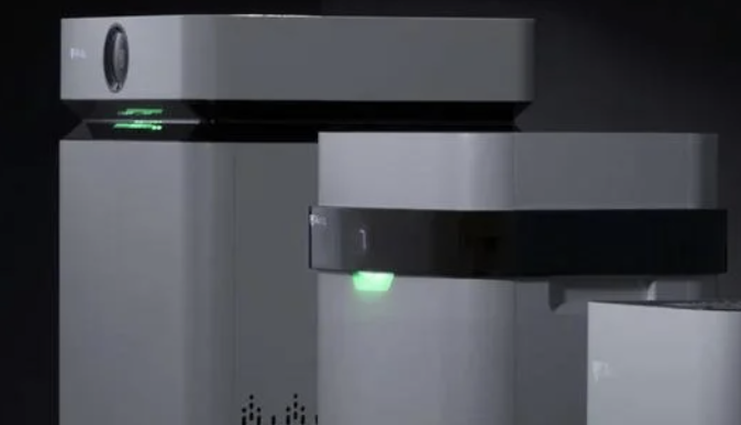
Order your Airdog Now
Frequently Asked Questions
What are the most common asthma triggers that air purifiers can remove?
Can an air purifier replace my asthma medications?
How quickly might I notice improvements in my asthma symptoms?
Should I put an air purifier in my bedroom or living room for asthma?
Are there any air purifiers I should avoid with asthma?
How do washable filters benefit people with asthma compared to disposable HEPA filters?
Can air purifiers help with exercise-induced asthma?
Will an air purifier help during wildfire season or high pollution days?





